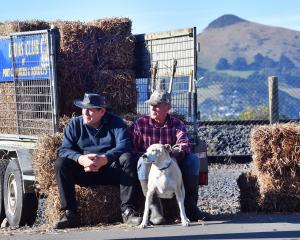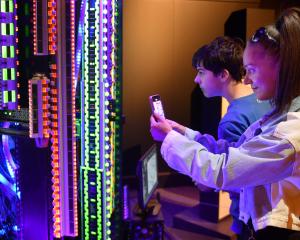''The reality is that, clearly, Dunedin doesn't have the infrastructure at the moment,'' he said.
''We should take more refugees - the community is showing that it would put effort into supporting them. But the community doesn't have the resources across the board to do it all.''
His comments yesterday followed the Government's announcement it would accept 600 Syrian refugees above New Zealand's refugee quota over the next three years.
A spokeswoman for Immigration Minister Michael Woodhouse said last night ''we can't say whether or not there is going to be a huge number [of refugees] coming to Dunedin, so we can't say whether or not [Dunedin] would be provided funding''.
The refugees would go through Mangere Refugee Resettlement Centre in Auckland first, she said, and ''a lot of them'' would likely then go to Wellington because of the existing infrastructure and Syrian community there.
South Dunedin Catholic priest Fr Gerard Aynsley said that even before yesterday's announcement, ''I was getting emails every day saying, I'm happy to support [refugees], I'm happy to be involved''.
Earlier this year, Fr Aynsley helped start a working group in the hopes of making Dunedin a refugee resettlement centre.
The group had not come up with a firm proposal yet, he said, but the suggestion Dunedin could take in 100 refugees had been bandied about, he said.
That working group was co-ordinating with another group effort spearheaded by Dunedin Labour MP Clare Curran, which met for the first time at the weekend.
''I was contacted by a bunch of people on social media, saying, we want to do something, so I organised a meeting,'' she said.
The second group had planned a vigil for this Friday at 5.15pm in the Octagon, and set up a Facebook page, Dunedin Welcomes Refugees, that had over 400 likes.
Dunedin Refugee Support Group trustee Barbara Johnston said the two groups reflected a ''commendable'' degree of community interest in refugee resettlement.
But, she added, ''we have to look at it from the refugee point of view as well, and consider their needs''.
''We've also got to ... make sure that we've got the resources and long-term commitment [to resettlement].''
Ms Johnston got involved in refugee resettlement in the 1980s, when Dunedin welcomed about 1200 Cambodian and Vietnamese refugees over almost 10 years.
Back then, she said, Dunedin had the government-funded infrastructure necessary to resettle refugees appropriately.
''But since then, there hasn't been a migrant or refugee resettlement centre, so we haven't had any of those government services in place, [which] also means there's no funding for any of those services.''
Necessary services included English language courses, mental health services, social services, and general help with integration into homes, work and school.
She agreed with Mr Cull that successfully resettling refugees would be impossible without cash and support from the Government.
''It's great that people are coming forward, but I think it's important that we're realistic about what we need to have,'' she said.












